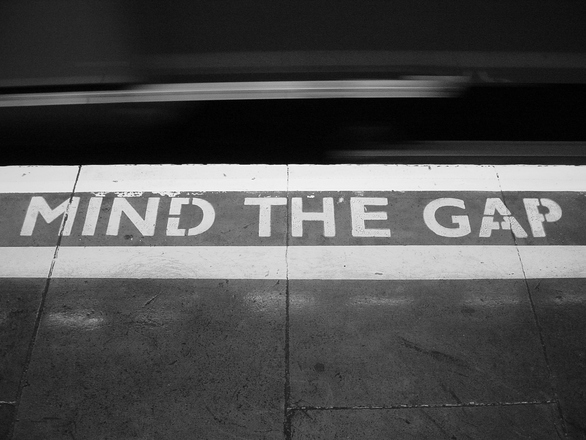 Recently I had the good fortune to read some of Pamela Stewart’s new and as yet unpublished prose poems. She’s creating a mosaic of small, luminous pieces with a variety of characters, voices, and circumstances—and the project is still in process. I was struck by the abruptness of the endings and an absence of correlation in relationship between pieces. Struck in a good way—as in, I was mesmerized by a sense of incompleteness that opened up something compelling and strange: a feeling of being lost. I find I long for that feeling even more than for meaning. It’s in those spaces where there’s a lack of overt connection that the reader’s imagination and experience finds room to fill in the gaps. Wow, I’m in.
Recently I had the good fortune to read some of Pamela Stewart’s new and as yet unpublished prose poems. She’s creating a mosaic of small, luminous pieces with a variety of characters, voices, and circumstances—and the project is still in process. I was struck by the abruptness of the endings and an absence of correlation in relationship between pieces. Struck in a good way—as in, I was mesmerized by a sense of incompleteness that opened up something compelling and strange: a feeling of being lost. I find I long for that feeling even more than for meaning. It’s in those spaces where there’s a lack of overt connection that the reader’s imagination and experience finds room to fill in the gaps. Wow, I’m in.
But, as I struggle with a second book (and, frankly, find myself painting partly to avoid writing), I look at the pile of paper on my desk and wonder what I’m going to do with it all. It’s the kind of dumb question that garners a lot of good advice that doesn’t help in the least. “You’re going to have to connect these with some arc.” Or: “What theme are you working with?” Or: “ Pay attention to the voice.” Naturally, I got all tangled up thinking about ideas, narrative arc, theme, architecture. And all that noise started harassing my little poems, strapping them into broken chairs under the single swaying bulb in a dank Jersey warehouse. Like smart wiseguys, the poems clammed up.
 Last week I was a participant at VCFA’s post-graduate writers conference and worked with the Detroit poet Jamaal May who talks faster than possibly anyone else worth listening to on the planet. His debut collection, Hum, (Alice James Books, 2013) sizzles off the page with an energy that connects an unflinching eye with passionate heart. And he’s an attentive, intuitive and smart teacher. Perhaps the thing he said that I most needed to hear was a quote from the poet Rigoberto Gonzalez that, “It’s good for a poet to be in trouble.” Yes, taking risks is good—but being in trouble is more than that: it’s good to be really scared.
Last week I was a participant at VCFA’s post-graduate writers conference and worked with the Detroit poet Jamaal May who talks faster than possibly anyone else worth listening to on the planet. His debut collection, Hum, (Alice James Books, 2013) sizzles off the page with an energy that connects an unflinching eye with passionate heart. And he’s an attentive, intuitive and smart teacher. Perhaps the thing he said that I most needed to hear was a quote from the poet Rigoberto Gonzalez that, “It’s good for a poet to be in trouble.” Yes, taking risks is good—but being in trouble is more than that: it’s good to be really scared.
I’m not praising the idea that poets need to be morbidly depressed, in acute pain, anxious out of our minds, or miserable. There’s enough pain in everyone’s real life. And I think creativity is fostered by the full range of human experience—including joy. But, I suddenly realized that somewhere I’ve been under the illusion that, given enough time and attention to craft, I wouldn’t have that lump in my throat. I wouldn’t have to choke on the raw sob I keep under wraps in my day job, in taking care of laundry, my husband, the bills. In all that left-brain activity, I’ve worked hard to have places in my life where I actually feel competent and I thought making poems could be one of them. Now—and here’s my gift to you, reader—I realize that, if the poems have life in them, I can feel good about that. Later—maybe much later. But the making itself requires my willingness to be undone, afraid, alone, fragile, fucked up. So I can shift focus, be lost, be a little off my game. Oh, shit. Thank heavens. Oh, shit. Amen.
A lot of scintillating things were said at this conference—it’s simply the best conference ever—and I’ve got a notebook filled with semi-legible scrawl to prove it What I hope will help my poems, is this: no matter where you and I are in the process of making a poem—or a book—along with attention to craft, theme, arc—there needs to be breathing room. Some gaps perhaps, some unfinishedness, the strangeness that feels alive. A roominess that allows things not fitting together until or unless they do. I love being lost as a reader. I love allowing meaning to come to me. I love not being hit over the head with what Roger Weingarten calls, “a poem as a life support system for an idea.” I forgot that I love—and need—being lost as a writer. And how much I need that trouble. Oh, shit. Thank heavens. Oh, shit. Amen.